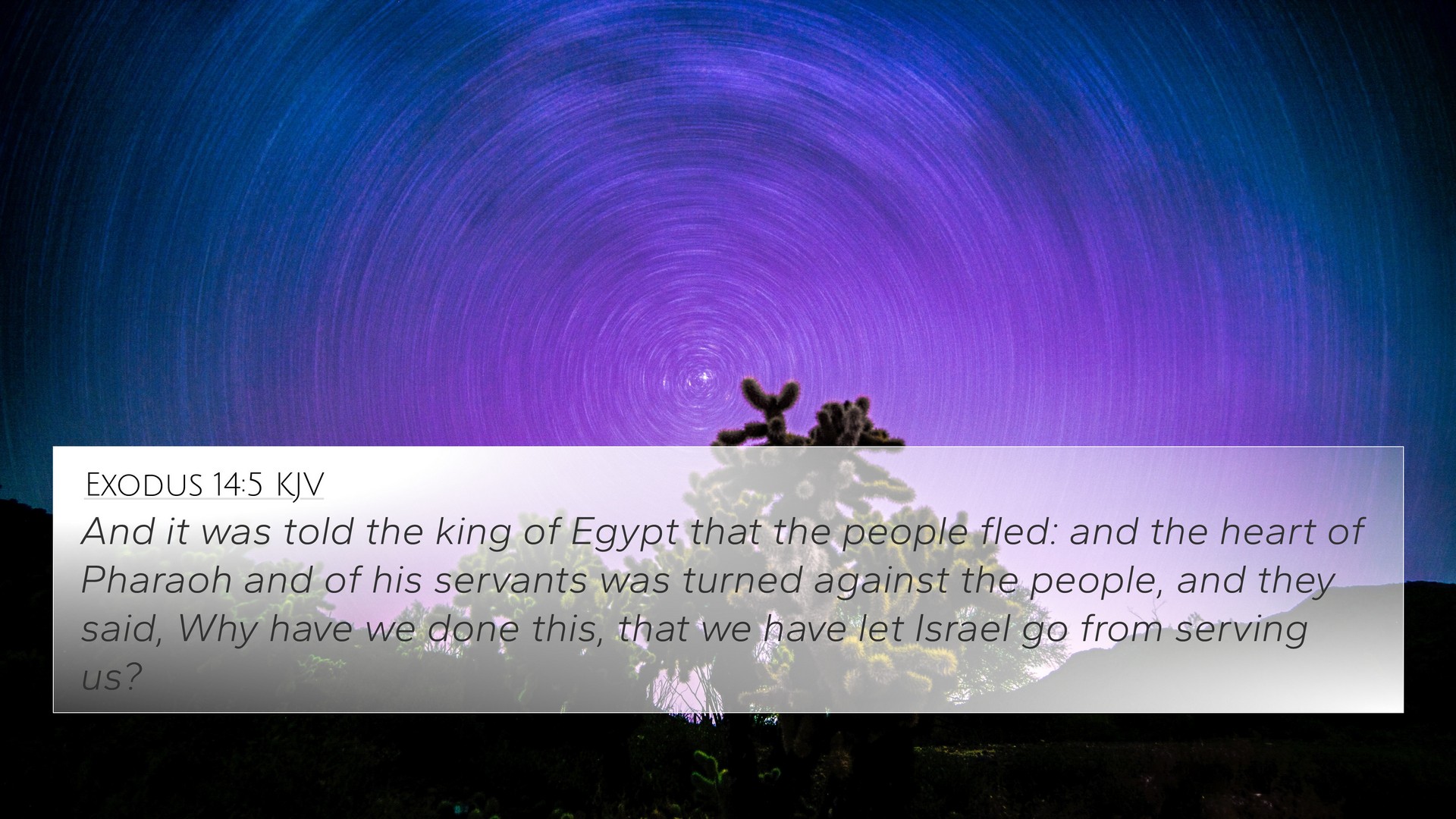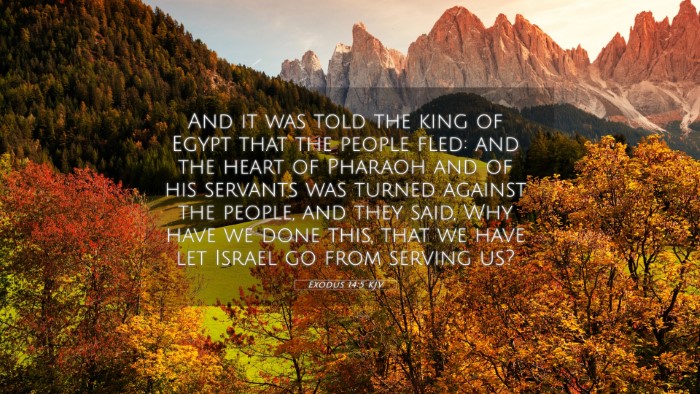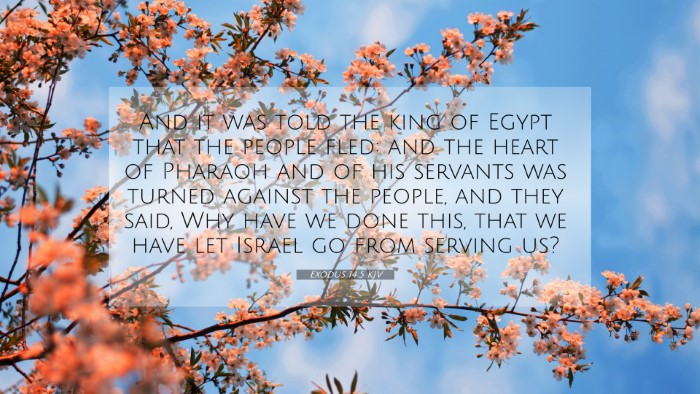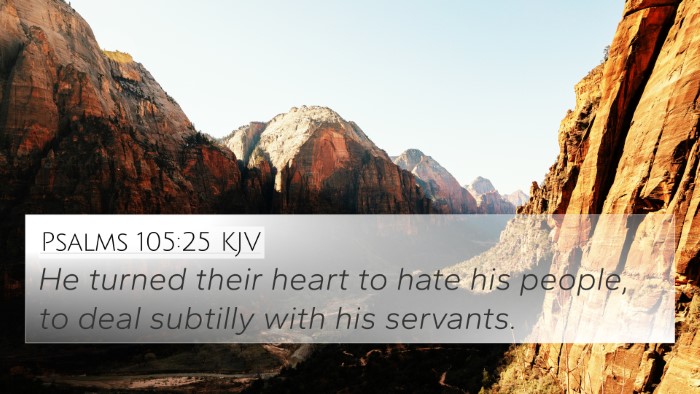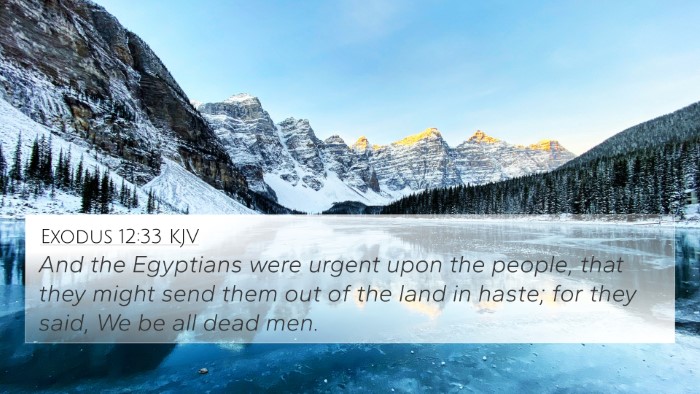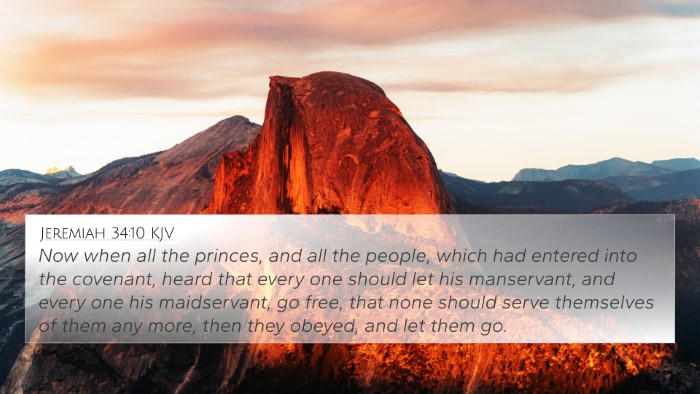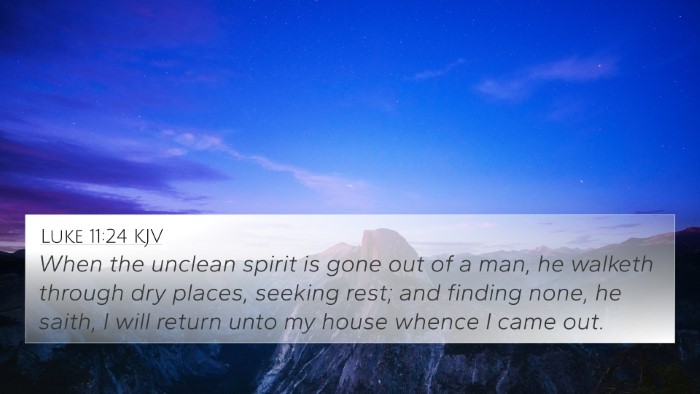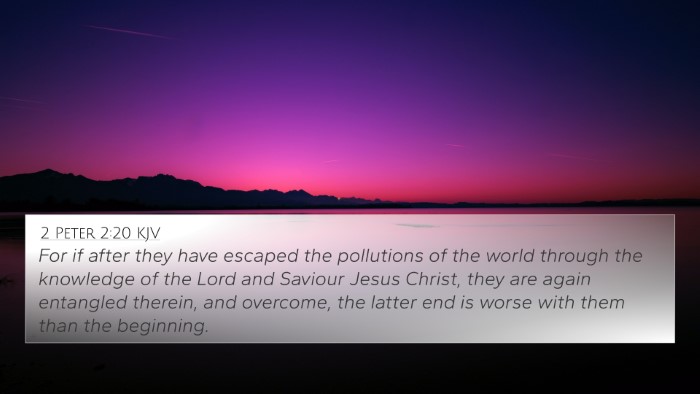Understanding Exodus 14:5
Exodus 14:5 states, "And it was told the king of Egypt that the people fled: and the heart of Pharaoh and of his servants was turned against the people, and they said, What is this we have done, that we have let Israel go from serving us?" This verse captures the moment of fear and regret experienced by Pharaoh as the Israelites escape from slavery in Egypt.
Verse Summary
This verse illustrates a critical shift in Pharaoh's attitude. Where he once oppressed the Israelites, he now feels the weight of his decision to let them go. It serves as a poignant reminder of the consequences of disobedience and pride, reflecting the inner turmoil of a leader facing the backlash of a significant decision.
Commentary Insights
Matthew Henry's Commentary
Matthew Henry notes that this verse signifies the change from oppression to liberation. Pharaoh's heart turns because he recognizes that he has lost a vital workforce. Henry emphasizes that such a transformation in mindset often comes from realizing the loss of something valuable, whether slave or servant.
Albert Barnes' Notes
Albert Barnes highlights that Pharaoh's reaction is driven by fear and regret. The king's initial confidence is shattered, leading him to question his earlier choices. This realization portrays Pharaoh's character, illustrating how fear can lead to desperate actions, a theme that recurs throughout the Biblical narrative.
Adam Clarke's Commentary
Adam Clarke discusses the implications of Pharaoh's lament. He points out that this moment is not simply a reaction to losing the Israelites but showcases the deeper issue of his unwillingness to accept God’s will. Clarke encourages readers to reflect on their personal choices and the accountability that comes with leadership.
Thematic Connections and Cross-References
Exodus 14:5 connects deeply with several themes and verses throughout the Bible, reminding us of the broader narrative of liberation, judgement, and the consequences of pride. Here are relevant cross-references:
- Exodus 1:13-14 - Highlights the oppressive conditions faced by the Israelites, framing the context of their eventual escape.
- Exodus 3:19-20 - God's forewarning to Moses about Pharaoh's resistance illustrates the divine plan at work.
- Exodus 5:2 - Pharaoh's initial denial of God's existence underscores his pride and belief in his own authority.
- Romans 9:17 - Reflects on Pharaoh’s hardened heart, aligning with the theme of God using leaders to fulfill His purposes.
- 1 Corinthians 10:11 - Reminds readers that these events serve as warnings for future generations.
- Revelation 18:10 - Echoes themes of judgement and loss that appear throughout the Biblical narrative.
- Psalm 106:10-11 - Celebrates the deliverance of Israel from Egypt, linking back to this pivotal moment.
- Isaiah 10:12 - Speaks on God's judgement against the oppressors, integrating the themes of justice and sovereignty.
- Hebrews 11:27 - Highlights Moses’ faith in leading the Exodus, juxtaposing it against Pharaoh’s doubts.
- 2 Peter 2:4-9 - Discusses the nature of judgment and deliverance, paralleling the themes seen in Exodus.
Inter-Biblical Dialogue
The story of Pharaoh provides rich material for cross-referencing with other scriptures. It sets up a dialogue not only within the Old Testament but also establishes themes that resonate in the New Testament, particularly around ideas of freedom, redemption, and servitude. Understanding these connections can deepen your study of the Bible.
Tools for Bible Cross-Referencing
To explore the connections between Bible verses further, consider utilizing various tools for Bible cross-referencing, such as:
- Bible concordance
- Bible cross-reference guide
- Cross-reference Bible study materials
- Comprehensive Bible cross-reference systems
How to Study Cross-Referencing
For those seeking to enhance their understanding of linking Bible scriptures, you may find it helpful to explore:
- Identifying connections between Old and New Testament
- Cross-reference themes in the Bible
- Exploring detailed cross-references among Gospels
Conclusion
Exodus 14:5 serves as a pivotal moment in the narrative of the Israelites' escape from Egyptian bondage. The lessons derived from the characters, particularly Pharaoh, offer deep insights into human nature and divine will. By engaging in comparative Bible verse analysis and using cross-references, readers can gain a richer understanding of Scripture.
